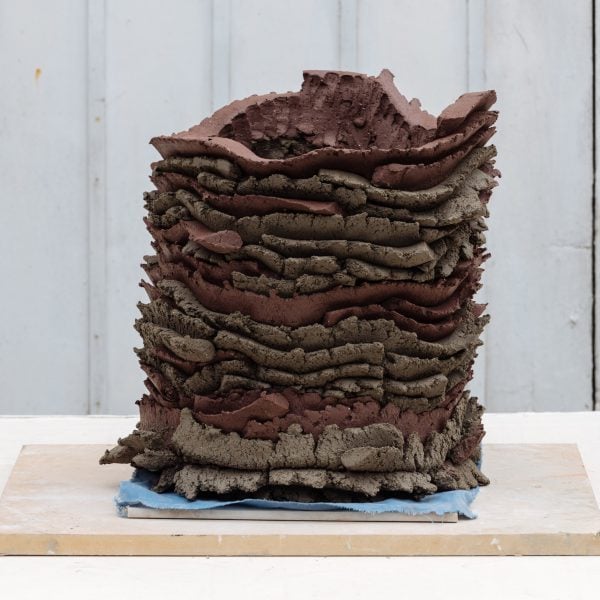Research venue Grymsdyke Farm has unveiled a series of sculptural objects at London Design Festival that show how the process of design can be based on physical making.
Named Reading Design, the exhibition features the results of hands-on workshops with designers Attua Aparicio, Marco Campardo, Sarah Van Gameren of Glithero and Grymsdyke Farm founder Guan Lee.
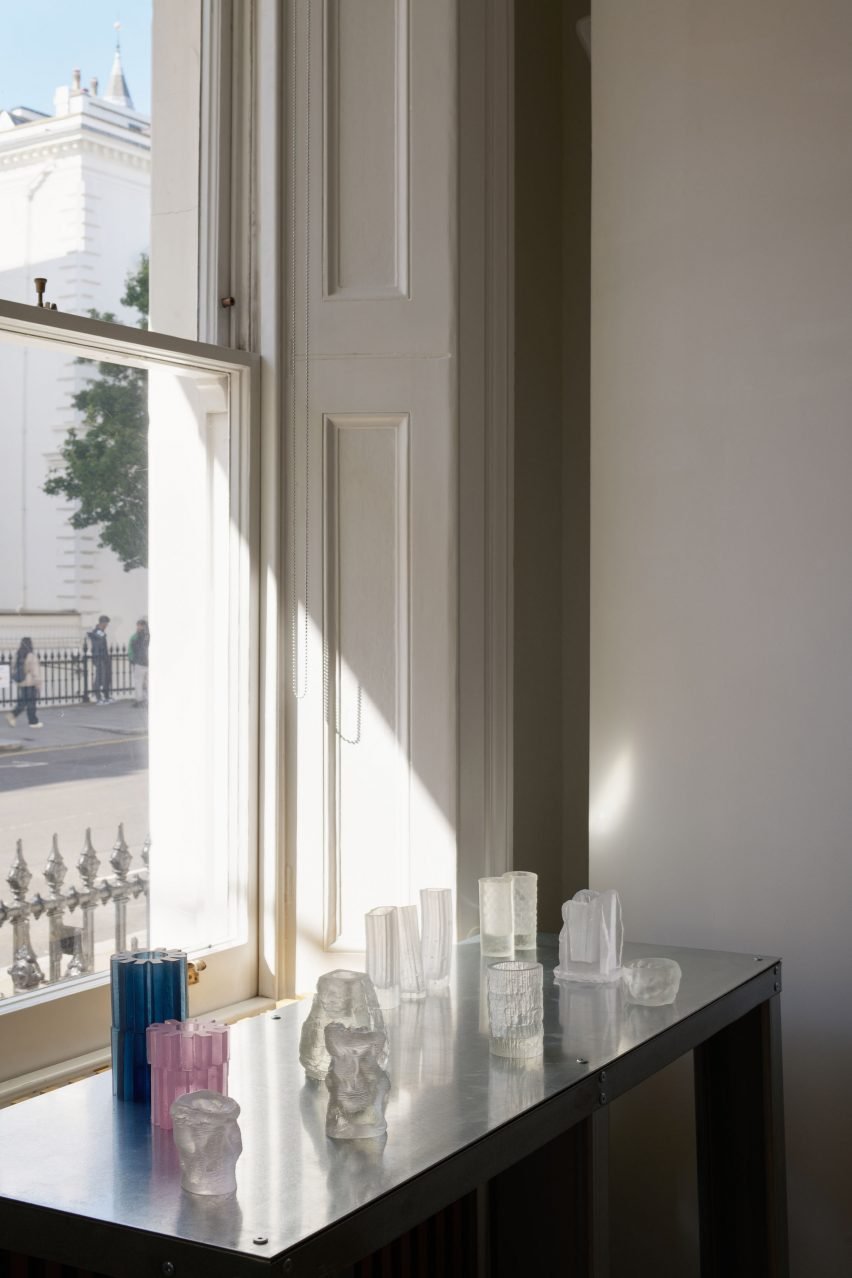
The objects include monumental ceramic vessels, spilled-plaster lamps, cast-glass vases and intricate bronze furniture.
“The idea is that design should be driven by processes of production,” Lee told Dezeen. “All of the designers agree on this. So the project revolves around this process-driven approach.”
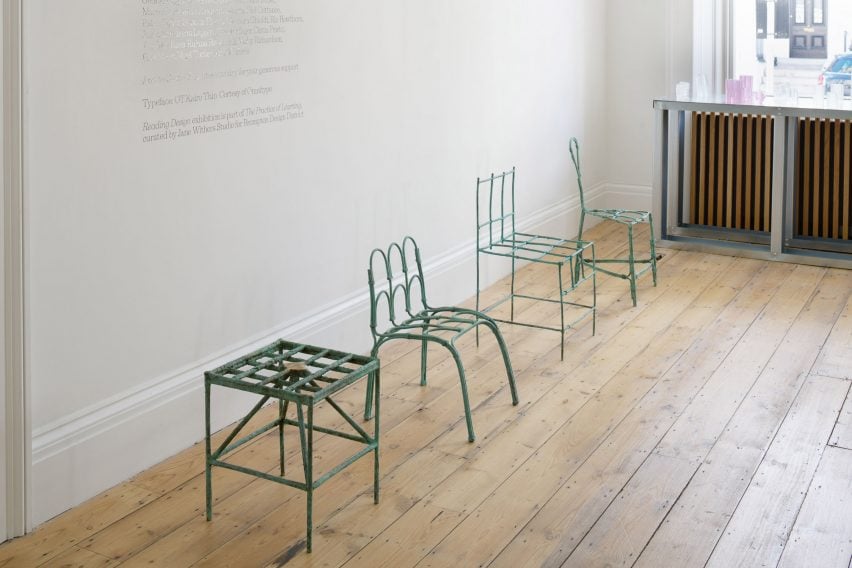
All of the pieces were produced over the course of a four-week programme, with students spending each week exploring a different material and process.
The workshops all took place at the Grymsdyke Farm location, a former working farm in Buckinghamshire.
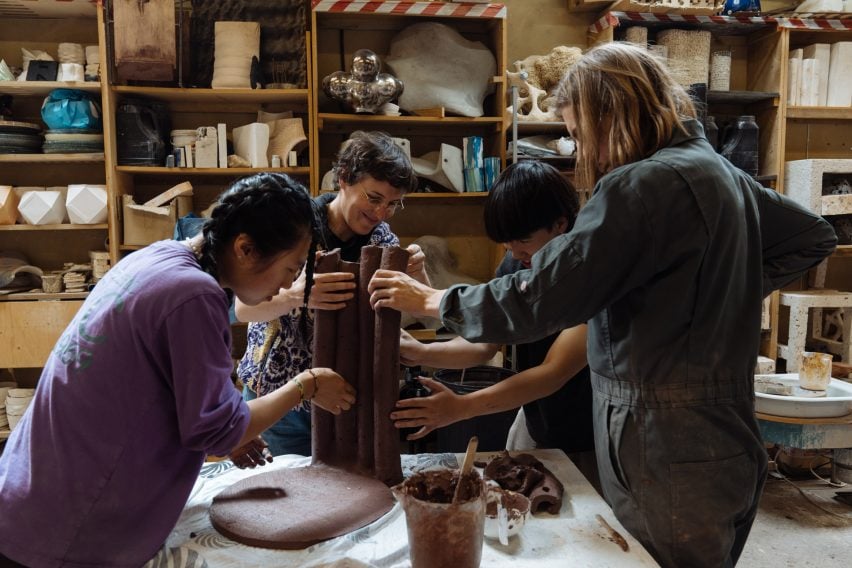
Lee, an architect and professor at the Bartlett School of Architecture, first set up the facility in 2004. Initially part of his Phd research, it has evolved into a hub for material experimentation.
A ceramics specialist, Spanish artist and designer Attua Aparicio asked the students to explore ways of combining different colours of clay.
The markings of fingers and tools can be clearly identified in the resulting vessels, while some also feature distinct joints. The idea was to create works that tell the story of the making process.
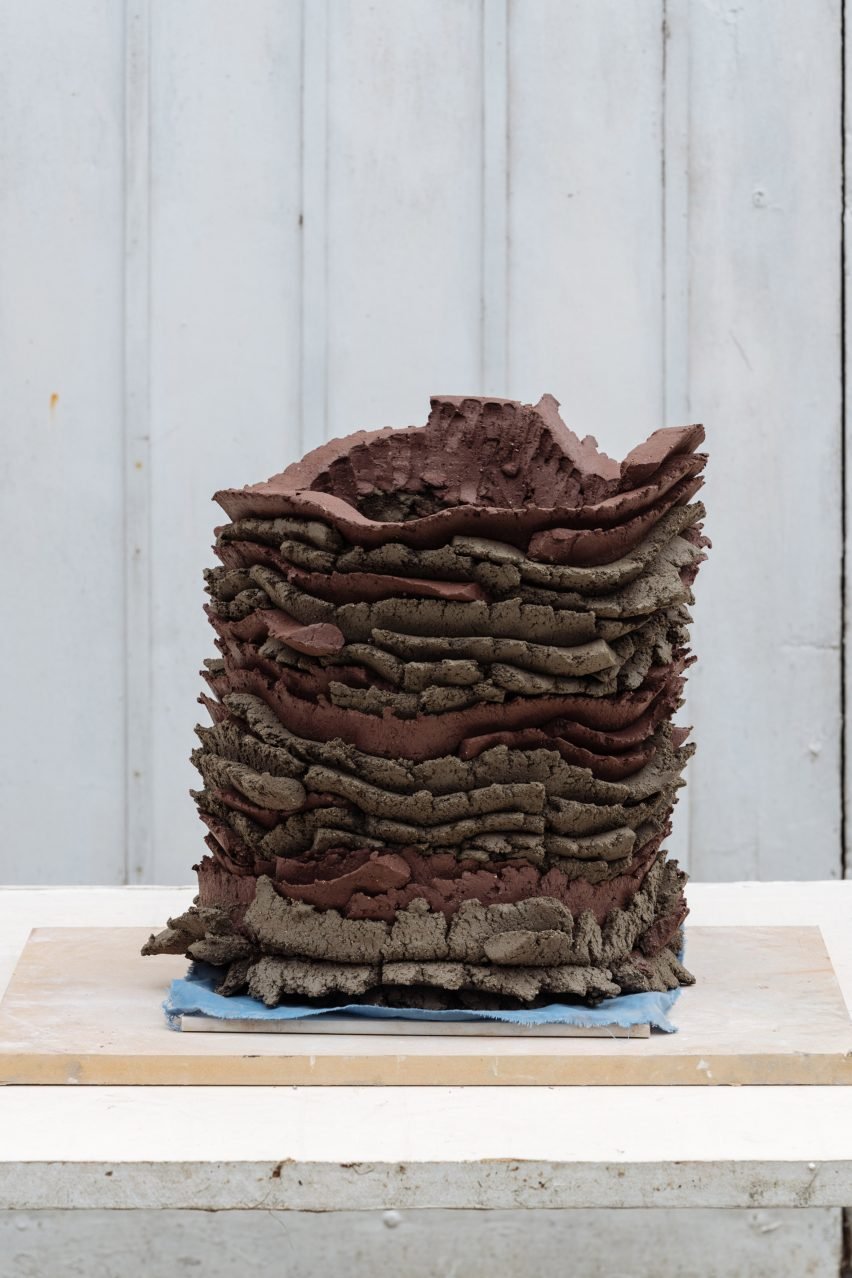
“We really experimented with different techniques,” said Emilia Tombolesi, one of the students who participated.
“There are extrusions, and then there’s pinching and stitching to connect different layers.”
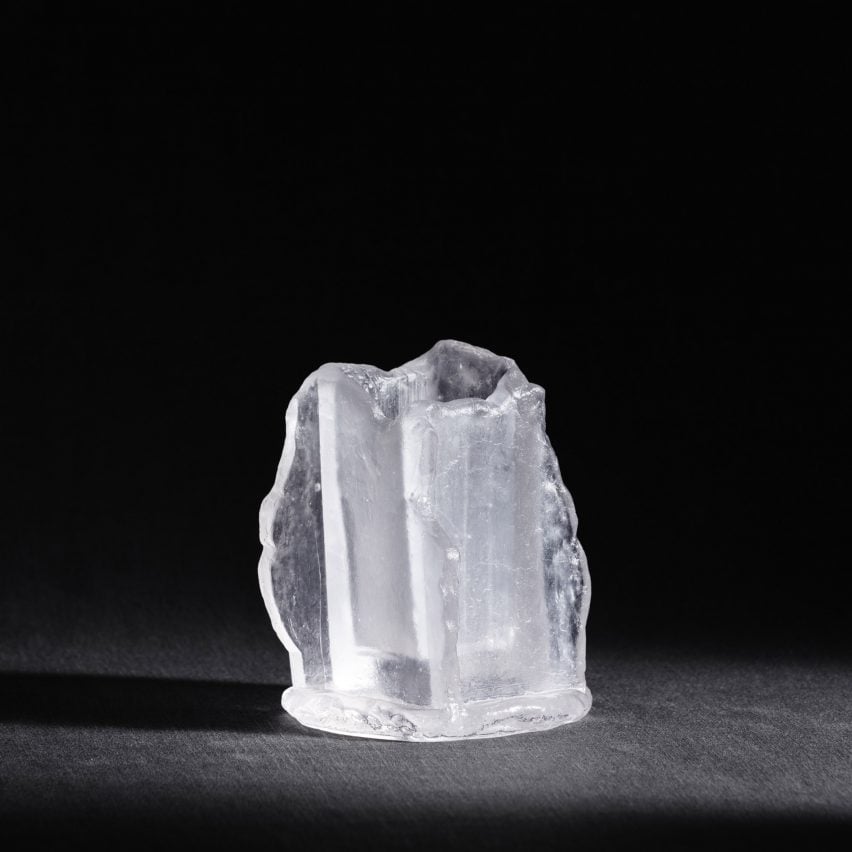
Italian designer Marco Campardo hosted a workshop looking at new ways of using wax for glass casting.
Students produced vases that showcase different forms, textures and degrees of transparency. Some feature pink and blue tones, while others boast spiralling or tubular shapes.
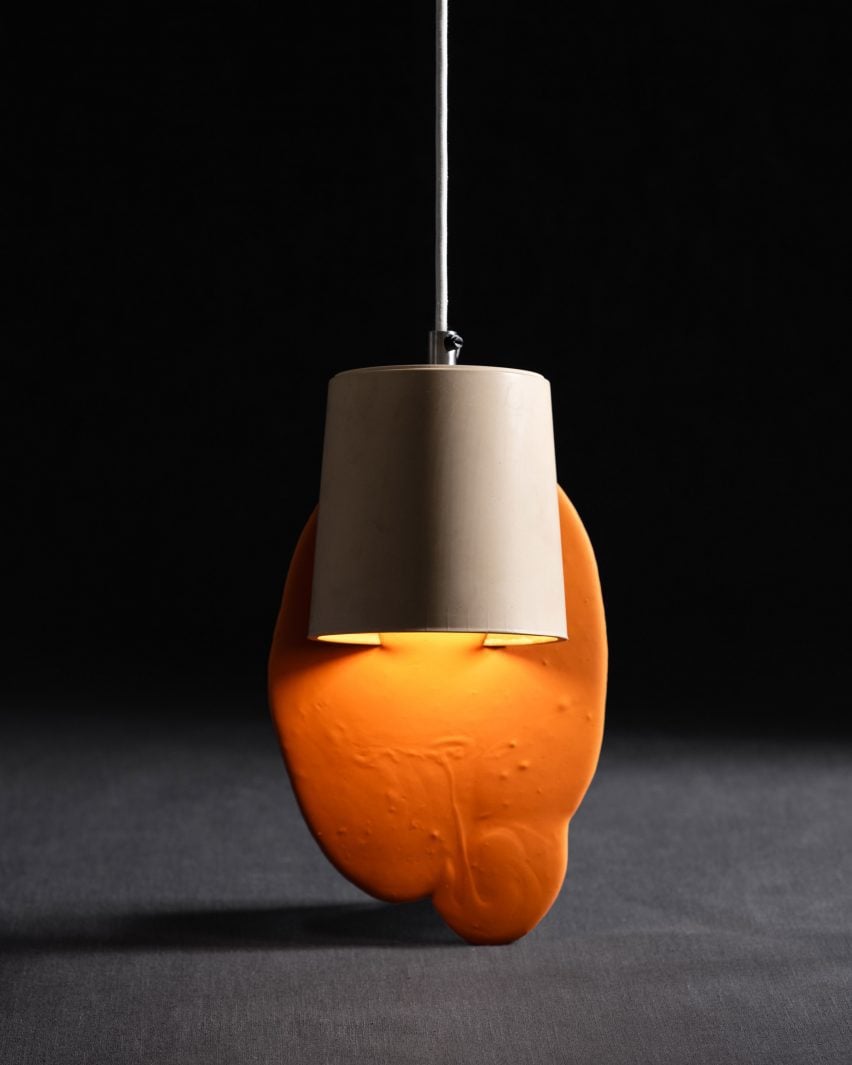
The workshop led by Sarah Van Gameren, co-founder of Dutch design studio Glithero, looked at how spilt material can offer a unique aesthetic.
Students used poly plaster to create a series of colourful wall-mounted lights.
For the final workshop, Lee guided students through the process of shell casting. They used this to create wire-like bronze chairs and tables.
“We wanted the students to work with materials that rarely or never worked with before,” Lee said.
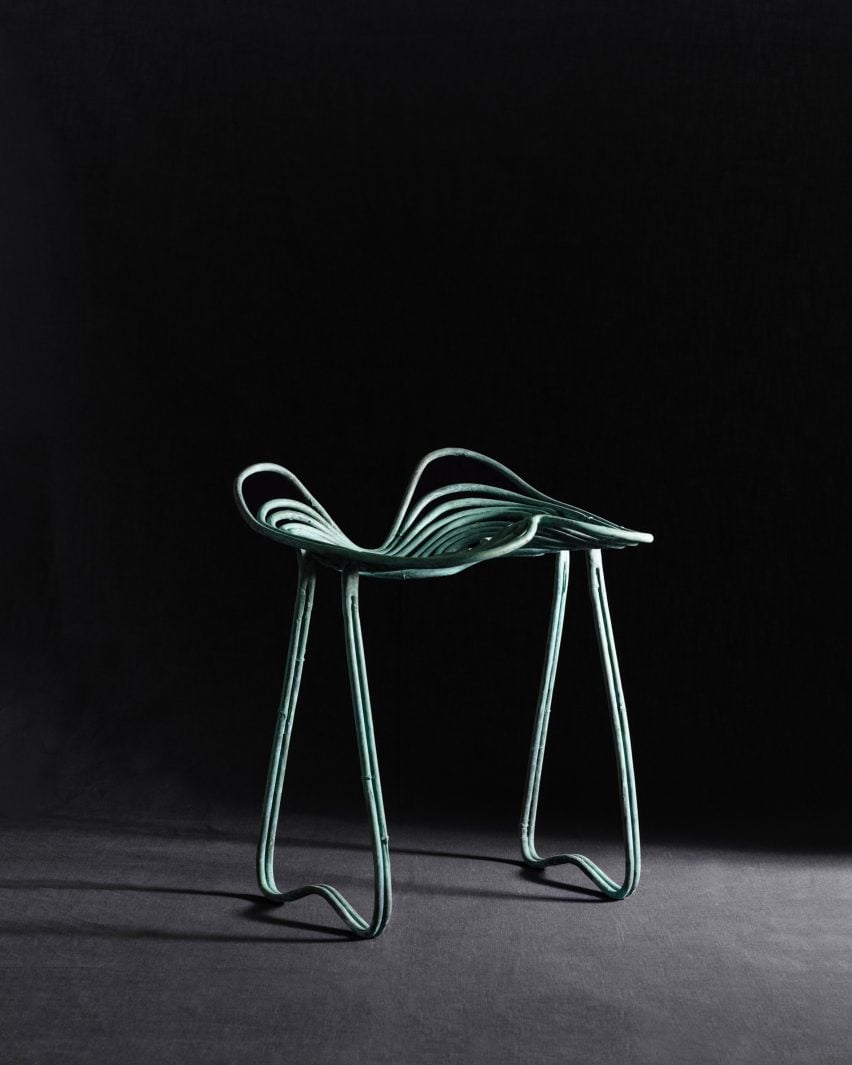
Reading Design is the second exhibition that Grymsdyke Farm has created for LDF.
Last year’s debut, The Farm Shop, was slightly different. A collaboration with gallery Fels, it featured works created by designers rather than students. This new approach allows a stronger focus on education.
As with the Farm Shop, the objects will be sold to help support the operating costs of Grymsdyke Farm.
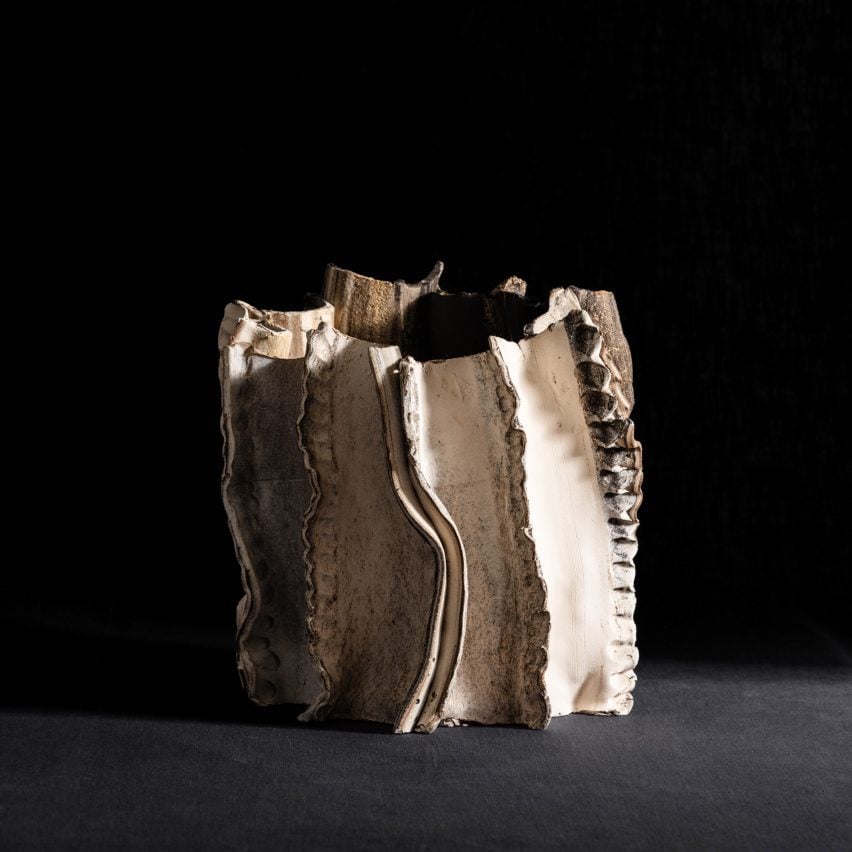
“It was something we had never done before,” Lee said. “In the past, we wouldn’t produce things that were tangible. But by working directly with designers, we created art products that could be monetised.”
“This year, we wanted to do the same thing but with an educational agenda in mind.”
Grymsdyke Farm’s Reading Design takes place from 14 to 22 September 2024 at Cromwell Place, which is part of the Brompton Design District. Visit Dezeen Events Guide for a guide to London Design Festival and other architecture and design events taking place around the world.
Exhibition photography is by James Harris. Workshop and product photos are by George Baggaley.

